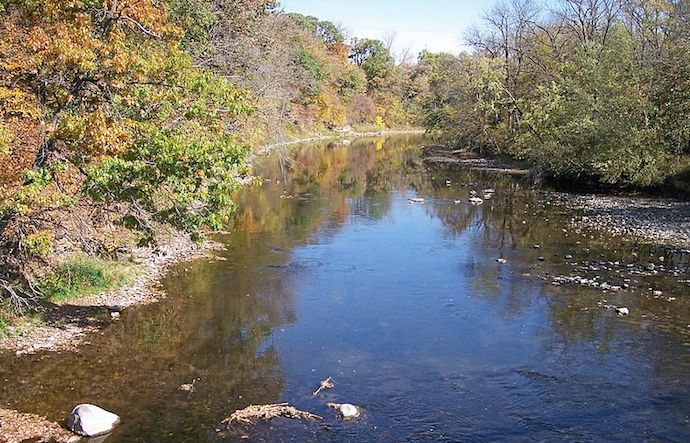
The first discovery of gold in Iowa was in 1853 in Hardin County. Miners worked the area northwest of Marshalltown on the Iowa River, but there simply wasn’t enough gold found in the gravels to make it pay.
The early prospectors may have given and moved on, but there is still enough left to excite the amateur prospector today. For one thing, gold is worth a whole lot more than it was back then.
Glacial Gold Deposits in Iowa
As with so much of the gold in the midwest region of the United States, the glaciers that covered the area drug gold bearing gravels down from Canada in the course of their advancing and receding. This glacial gold is still there today, being a little difficult to predict where it can actually be found.
This glacial gold will be very fine flour gold, which is of no interest to commercial mining, but offers some possibilities to the hobbyist.
A geological survey conducted in 1904 on Otter Creek in Fayetteville County reported that $1.00-$1.50 per day could be produced from a long day of hard work. Make adjustments to the price of gold today, and you might find it worth your while. While experts feel this report is on the optimistic side, at least it does indicate that gold is present.
Here are a few of the areas that might be worth a try:
You shouldn’t expect to find nuggets here, but if you work carefully you should be able to gather some very fine flour gold from the area’s gravels. Very carefully panning technique is necessary.
Minerals, Fossils and Lost Treasures of Iowa
Iowa has some other treasure to offer as well. there are freshwater pearls to be found along Mississippi River tributaries, and fresh water pearls are not without value. Tiffany and Company paid $1,500 for a fresh water pearl in 1857.
If you have interest in fossils, rare sea lily and starfish fossils have been found in Marshall County in the limestone quarries close to LeGrand.
The prospector with a metal detector might be interested in some of the lost treasure in Iowa. Bootlegger buried treasure, robberies, missing payrolls – do a little research, because there are some very interesting stories of caches that have been lost in the state.
Do make sure you have permission to metal detect on private property if you decide to give it a try. There is very little public lands, so you will need to seek out landowners to get access to detecting sites.
Next: Gold Prospecting in Illinois

